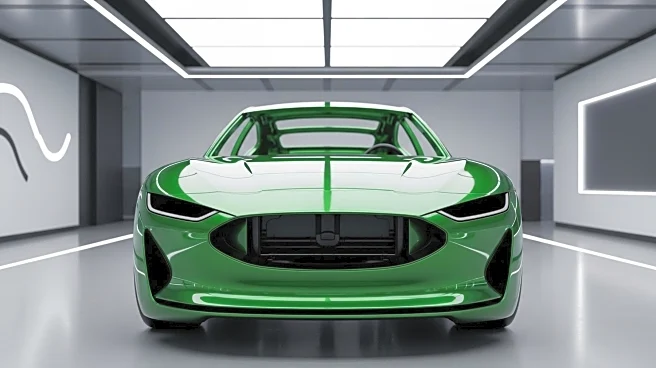What's Happening?
Volvo Cars has emerged as a leader in the automotive industry's shift towards green steel, according to a new analysis by Transport & Environment. The study highlights that up to 30% of car production emissions come from steel, making the adoption of green steel crucial for reducing carbon footprints. Volvo has set ambitious targets and signed multiple agreements for near-zero emissions steel, outperforming other automakers like Mercedes and Tesla. The auto industry accounts for significant steel demand, with Volvo's efforts marking a substantial move towards decarbonizing car production.
Why It's Important?
Volvo's leadership in green steel adoption is significant as the auto industry seeks to eliminate tailpipe emissions through electrification. Decarbonizing the production of cars is a crucial next step, and Volvo's proactive approach sets a benchmark for other automakers. The company's efforts could influence regulatory policies, as Transport & Environment pushes for the European Union to adopt strong requirements and timelines for green steel use. Volvo's actions demonstrate the feasibility of transitioning to sustainable production practices, potentially driving industry-wide change.
What's Next?
Transport & Environment is advocating for the European Union to introduce green steel targets in new cars, with proposed thresholds of 40% by 2030, 75% by 2035, and 100% by 2040. The organization also calls for incentives for made-in-EU green steel to support the EU steel industry's decarbonization efforts. Volvo's leadership may encourage other automakers to follow suit, accelerating the shift towards greener production practices and strengthening the resilience of the European economy.
Beyond the Headlines
Volvo's commitment to green steel reflects broader sustainability trends in the automotive industry. As companies strive to meet decarbonization goals, transparency in emissions reporting and ethical sourcing of materials become increasingly important. Volvo's approach may inspire other industries to adopt similar practices, contributing to global efforts to combat climate change. The company's actions also highlight the potential for collaboration between automakers and steel suppliers to achieve environmental objectives.











